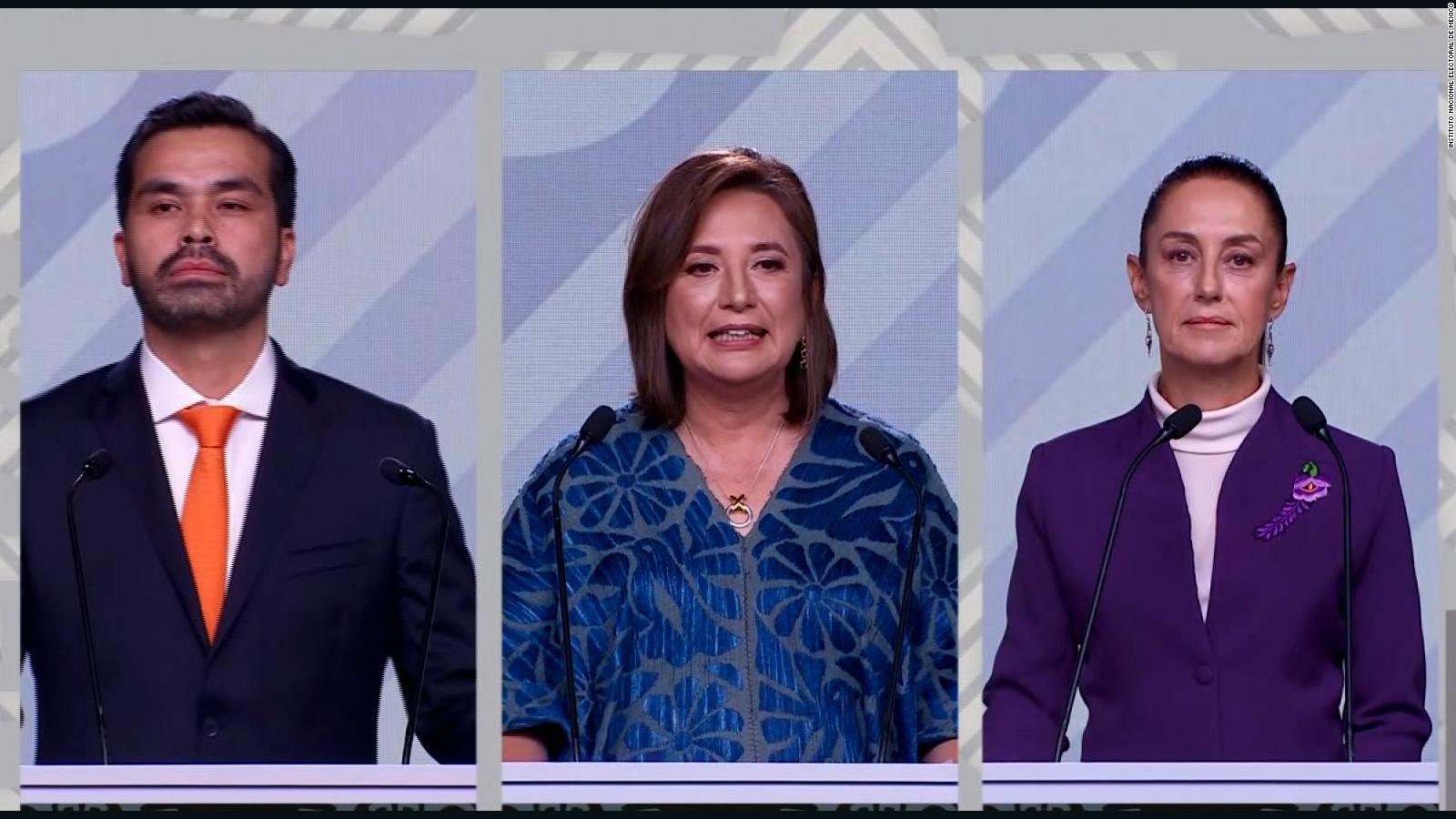Final Debate Intensifies as Mexican Presidential Election Approaches
The final debate before the June 2 election brought Mexican presidential candidates Claudia Sheinbaum, Xóchitl Gálvez, and Jorge Álvarez Máynez together at the Tlatelolco University Cultural Center in Mexico City. Over nearly two hours, the trio engaged in a heated exchange to persuade approximately 100 million registered voters. The focal points of the debate included promises to improve social programs, healthcare, and address organized crime.
Xóchitl Gálvez, representing the Fuerza y Corazón por México coalition, pledged to enhance the quality of life for the Armed Forces by increasing their income and extending rest days. Gálvez also plans to refocus the military on combating violent criminal organizations, shifting them away from civil tasks. Her proposals also include doubling scholarships to facilitate higher education for more youth.
Claudia Sheinbaum of the ruling Morena party emphasized the importance of democracy, recalling historical events like the Tlatelolco massacre to criticize her opponents' ties to the old regime. She proposed the creation of new megapharmacies and providing one million homes for young people, promising that the minimum wage will always increase above inflation.
Jorge Álvarez Máynez from the Citizen Movement focused on youth voters, urging them to participate actively in the elections. He promised to equip police officers properly and guarantee a 'living wage.' His vision includes positioning Mexico as one of the top 10 global economic powers and ensuring that social programs evolve to meet contemporary needs.
Despite the candidates' ambitious proposals, the debate was marked by personal attacks and a lack of concrete details on how these promises would be implemented. Mutual accusations ranged from questioned personal integrity to past actions that each candidate used to undermine their rivals' credibility.
Structured into four segments, the debate covered social policy, organized crime, migration, foreign policy, democracy, and division of powers. Although initially planned to include direct citizen participation, this element was omitted due to alleged pressure from the campaigns.
- In separate interviews and social media interactions, each candidate continued to build on their debate performances. Xóchitl Gálvez reiterated her commitment to not only improve the lives of the military personnel but to ensure that their core responsibilities align with combating organized crime.
- Claudia Sheinbaum, while promoting democratic values and citizen participation, acknowledged the necessity of the debates in making candidate proposals known to the public. She countered criticisms by emphasizing her achievements and the transformative projects she proposes.
- Jorge Álvarez Máynez, advocating for practical voting, encouraged young people to make their voices heard in the polls. His campaign focuses on tailoring social programs to be more effective and evolving them to fit modern socioeconomic demands.






